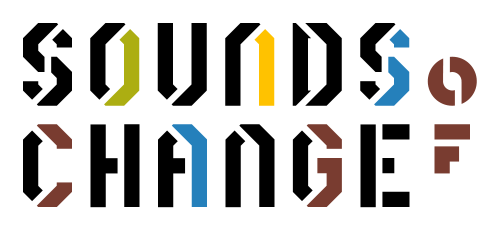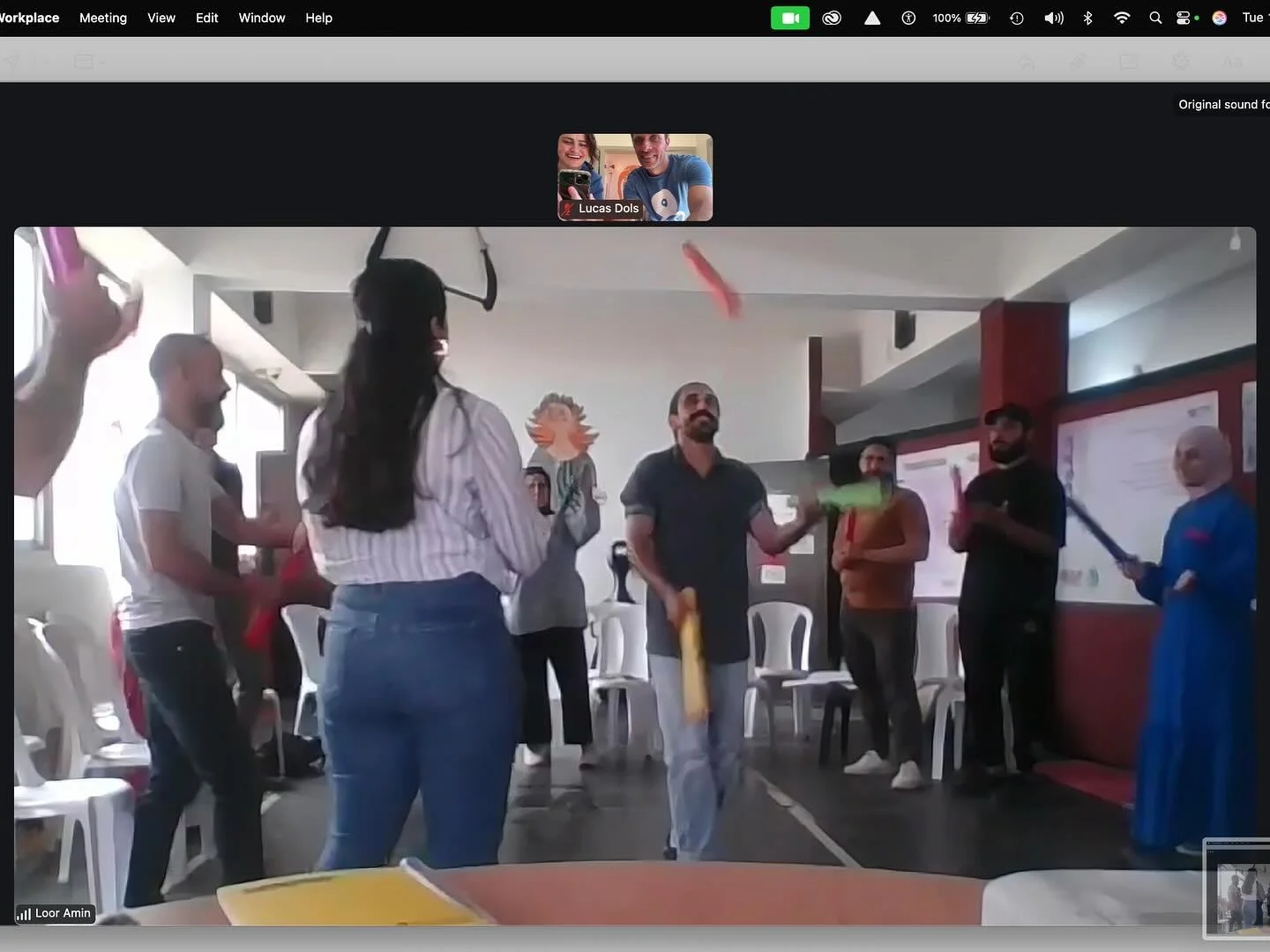Music, Art and Trauma - Support program Palestine, Jordan and Lebanon
The past two months have been intense and impactful.
We have had the privilege of working with aid workers operating in Gaza, the West Bank, Jordan and Lebanon. In this newsletter, we would like to share more about the hybrid training we recently conducted in the West Bank and the support group we started for aid workers in Gaza.
This year and next, we’re providing training to professional aid workers in Gaza, the West Bank, Jordan, and Lebanon.
Some of this training is held online, like the sessions we offered in April when we trained 90 local aid workers. Others will take place in person; after the summer, we’ll deliver on-site training weeks in Jordan and Lebanon.
Our training program for aid workers in Palestine, Lebanon, and Jordan is supported by the DROSOS FOUNDATION. We extend our sincere thanks for their support.
In May and June, we also launched our first hybrid training in the West Bank.
So how does hybrid training work?
Over the past few months, we prepared local trainer and cellist Faris Amin to lead exercises, facilitate activities, and guide group reflections. Faris previously completed Anne van den Ouwelant’s (Trauma International) online training and also took part in multi-day training with Sounds of Change.
Together with another local trainer, Ursula Mukarker from Wings of Hope for Trauma — who covered the theoretical aspects of trauma in collaboration with Trauma International — Faris and Ursula delivered two multi-day training sessions in Bethlehem and Birzeit (near Ramallah), while our trainers provided online support and additional content from the Netherlands. Thanks to the easy accessible approach of Trauma International, participants learned about trauma and how to support those dealing with trauma-related symptoms.
They were also trained in using the Sounds of Change 6-step workshop and session design system, and how to work with creative techniques like art, music, movement, and dialogue to foster safety, stabilisation, stress reduction, and connection.
The 25 participants came from various organisations across the West Bank, representing a wide range of professions: from teachers and psychologists to therapists and medical clowns.
Whatsapp training
In May, we continued our training program with a multi-day online WhatsApp training for aid workers in Gaza. We deliberately chose WhatsApp as our platform, so we wouldn’t have to differentiate between those with or without stable internet access. WhatsApp proved to be relatively accessible for most participants.
We had prior experience with this format when we ran WhatsApp training in Lebanon during the COVID period, enabling us to create an effective approach. We created a group chat with all participants and shared all training content - both theory and exercises - through pre-recorded video clips in Arabic. These were sent directly via WhatsApp. To keep the group dynamic alive and interactive, we supplemented the videos with voice messages and exercises in the chat. The responses we received throughout the training days were meaningful and deeply moving.
In the end, 75 aid workers participated in the training - and we’re still in touch with them through the WhatsApp group.
“I wasn’t able to attend the live sessions due to internet outages, I followed all the materials and activities shared in theWhatsApp group with great interest. The content was rich in both theory and practice, and full of creative techniques that we, as mental health support workers, truly need — especially under the emergency conditions in Gaza.”
· “The course was also eye-opening on a personal level. It encouraged me to reflect on the information and exercises in a way that deepened my own self-awareness. This personal insight will positively influence how I connect with both children and adults, whether in teaching or other forms of engagement.”
Over the past three months, we’ve trained more than 200 aid workers through our online training sessions in April (for professionals working across the region), hybrid training in the West Bank, and our WhatsApp training for aid workers in Gaza.
We remain in contact with these professionals and continue to support them through online peer supervision and in-depth, specialised training.
We’ll keep you updated on our work through forthcoming newsletters and if you’d like to support us, we would greatly appreciate it. You can find out how below.
Thank you for reading to the end of our 'Stories of Change' newsletter!
Would you like to support us and create change together?
Become a monthly donor—by joining our Orchestra of Changemakers - you help bring the power of music to communities in crisis, every single month.
As a thank you, you’ll receive a personal invitation to our special annual event, filled with inspiring stories, project updates, and of course: live music created for and with you.Support us with a one-time donation and help us continue our work
Sharing our story with others who may be interested also helps us enormously.
With love, peace and warmth,
Lucas, Sander, Nour and the rest of the Sounds of Change team











